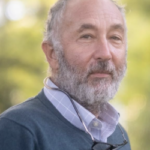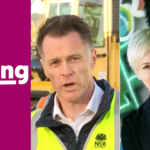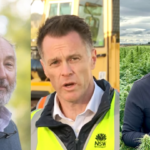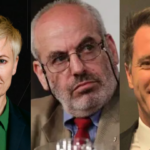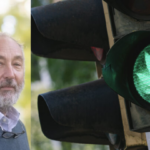Reflections on the Squibbing of the NSW Government Drug Summit Response
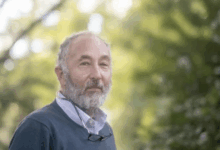
We were promised the world and given a shit sandwich. And now there will be no more meaningful drug law reform in NSW in my lifetime. This was a once in every few decades opportunity. It has been lost.
The Drug Summit
The four days of the drug summit was a chance for 700 of the real experts and pollies and police and those with lived experience to have a say and there was remarkable good will, compromise, exchange of views and a set of recommendations that caused no outcry from any sector, including the conservative opposition.
Even before the summit started Minns made it clear that decriminalisation was out of bounds for cannabis or any other drugs. It was simply off the agenda. This limitation was adhered to, despite the frustration of many.
Three key recommendations
Most of the recommendations were uncontroversial, and involved planning, budgets and rehabilitation. All very beige.
On safe injecting rooms the priority recommendation was to remove the legislative limitation resulting in only one medically supervised injecting centre thus opening the door to the community consultations for more centres. The recommendation states unequivocally, “there were multiple calls across all consultations to expand the number and location”. According to government, they know better, and a need for more has not been established.
Really? Let’s tell that to everyone in NSW who loses a child to drug overdose. Why are the lives of injecting drug users of the Eastern Suburbs of Sydney worth more than those in the South West or Orange or Lismore? Is it based on race, colour, class or just geography?
The refusal to even entertain the extension of safe places for injecting drug users will cost lives. People will die of overdoses who do not need to, but perhaps they are not cool kids, like those of Paddington or Bondi. This is heartless refusal to move to a harm reduction model and every preventable death will be blood on this government’s hands.
On sniffer dogs and strip searching, the priority recommendation was to cease these practices at music festivals where there is drug checking, “with consideration to extending this to all music festivals”. Nope, the NSW government has rejected this on the advice of police who say the current regime is a useful investigative tool.
Why is the bodily autonomy of (mainly non-drug possessing) young people at music concerts worth less than that of an opera attendee? What about the trauma caused to those searched? What about the practice of loading up before attending? What about the recommendations of the Ice inquiry, and the coronial recommendations into the deaths of six young people, or the Cannabis Regulation upper house inquiry to the contrary. This is a victory for the NSW police over public, expert and judicial calls for action. Let alone the Drug Summit.
Again, lives will be lost for some perceived electoral advantage. We will have more “front loading” leading to overdose, more irresponsible drug use, less access to pill testing and more trauma for those body searched.
But hell, they are just young people who should know better, and they are sacrificial angels on a pledge not to be seen to be soft on drugs. Pathetic.
On drug driving, the recommendation was the introduction of a Tasmanian style defence with additional police discretion. Not the most radical outcome, but certainly a start. “Nope”, says the Police Minister, and it instead is off to yet another working group, which according to the Attorney General, has no time line for reporting back.
Other reports (including the formal response documents) say it has been sent off to bureaucrats for a response by the end of the year. Although this is a glimmer of hope, I have little confidence when the Police Minister parroted the false dishonest discredited trope that 16 percent of fatalities “involve” cannabis.
The government’s actual formal documentation responding to the drug summit states the same thing – 16 percent of fatal crashes involve THC. That is just a lie, and if that is their starting point, there is not much hope.
There may be a minute quantity of THC in the post-partum blood of a drunk driver for example. But there’s no evidence a single one of those fatalities was a medicinal cannabis user, let alone that it was a causative factor.
There has been zero increase in in the road toll of anywhere in the world, including Tasmania, as a result of a medical defence or exemption. The key group for road fatalities is 18- to 25-year-old males, and we know that about a third of them use cannabis at some time. For the thousandth time, I find myself bleating, correlation does not equate to causation. They know this, but the more they can suggest that cannabis causes road trauma, the less likely reform will be.
Why is the ability of a cannabis prescription holder to earn a living worth less than a Valium prescription holder? And then there are all those people who will continue to use prescription drugs other than THC, despite them being more dangerous than those who use medical cannabis as directed.
It is catastrophic
Make no mistake, the Minns government is endangering the lives, the physical safety and the ability to travel and work for one group of people over another for purely political reasons. Not one of these decisions on the three key recommendations was based on the science, or the process of the Drug Summit. Just race, or class, or age, or geography, or medicinal choice.
I originally called for a boycott of the Summit when decriminalisation was unilaterally taken off the table – but I was sucked in by the facade of goodwill, look-in-the-eye promises from those in power and supposed open mindedness.
The breach of trust is astounding and gut wrenching. The despair in my inbox is overwhelming. People are hurting. I’m ashamed that I encouraged anyone to put their energy into bothering. The betrayal is complete. I was wrong. It was a complete diversion and excuse for gutlessness.
All in all, a dark day for public safety, and a dismal day for faith in the system. And this, in the wake of the Victorian Government, despite promises, now abandoning any cannabis law reform for the foreseeable future.
So, where do we go from here?
First, we need to recognise that there is likely to be no governmental reform in NSW in key areas for the next ten years.
In all likelihood, Minns will be re-elected, and if he happily ignores his own Drug Summit, he is likely to ignore any calls for change. And any change of government is likely to be to the conservatives. Not much chance of joy there. In Victoria, it is hard to see any bright lights on the horizon whatever the outcome of the next election. Their law-and-order rhetoric and desperate launch to the right gives little hope. In Western Australia, despite the biggest ALP majority in history, they have no stomach for drug law reform.
The ALP is not our friend any more, if it ever was. I recently asked Bob Brown about a quote from his new book Defiance – “Don’t join the old parties. Especially don’t listed to Grandma Labour when she says, “Why my red little dearie, come and change me from inside”.
I know there are good ALP people, even in cabinet, who will be deeply disappointed by this result. But they are outnumbered by the amoral pragmatists and likely to remain so. They will not quit over this. I would.
Second, the Legalise Cannabis political success, even though they have key votes in parliament, has not translated into concrete policy beyond the very minor. In NSW, there have been some minimal changes to the way that cannabis offences are treated, but again subject to police discretion.
In Victoria, the changes have again been token, particularly in the area of possession and drug driving. I don’t blame these cannabis representatives. But any trust is broken now, and they ought to recognise that the Labor party is a dead horse for any drug law reform. No more playing nice in the sandpit with them. That is what your voters want. That is what you were elected for.
Third, the industry really needs to lift its game in activism, particularly on drug driving. They have been helpful, but not pivotal. They need start to do the heavy lifting because their consumers and customers have been doing all the hard work. And not succeeding.
Fourth, we need to stop kidding ourselves that research or science or studies will change anything. The results are crystal clear on safe injecting rooms, on drug driving and on body searches and sniffer dogs. We have got nowhere and will get nowhere with more evidence. This is political, not common sense. Instead it is time to focus research on medications that can lead to quicker expulsion of detectable levels, options for ingestion (such as capsules) as well as cheap at-home saliva tests for clearance. I know there are some people testing masking agents for saliva testing, and that is food for thought.
Fifth, while the Greens have been great and provide some hope for the future, there is tension with the Legalise Cannabis representatives. In some cases, this is for historical reasons, and in others, it is because of a mistaken belief in Greens ranks that their votes are being stolen. The Greens rightly have a lot on their agenda, and Cannabis or drug law reform is never going to be their number one issue. Nor should it be.
In my view, most Legalise Cannabis voters are not moving from the Greens. They are from all over the place. A tight exchange of preferences is the answer, and personal animosity needs to be swept aside for the common good.
Activism options
Finally, for me at least, it is time for revaluation. I suspect that nothing we do in the next decade will make any difference in the business-as-usual model of our activism.
No more petitions, no more involvement with summits or evidence to inquiries. It does no good but gives false hope. We need to think outside the square. Perhaps we just sit and bear witness as the rest of the world changes to the point where it is embarrassing for the major parties here not to catch up. I do not wish to discourage activism in any way. However, I am greatly discouraged now.
Perhaps it is time for generational change…
